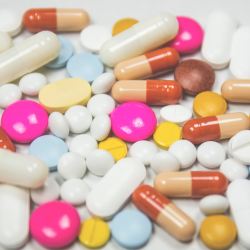How often do you hear of someone using their spouse’s antibiotic medication that was prescribed for a prior illness but not entirely if ever used? Or, a teen sharing her friend’s birth control pills? In both situations, none of the individuals are getting effective therapies. In the former, improper use of antibiotics not only can lead to resistance (a personal and societal foe), but also could be contraindicated and adversely impact other medications being simultaneously used for underlying medical conditions. While the family member originally prescribed the drug may be otherwise healthy and readily able to tolerate the antibiotic of choice, the spouse might have a kidney condition for which that particular drug can cause damage and exacerbate their preexisting illness. In the latter scenario, if neither teen is taking the proper dose then neither is protected.
The litany is endless. Consider drug diversion to feed addiction - one person gets pain pills after a surgery while a co-inhabitant, even caregiver, of the home seizes the opportunity for access. Or, pranks that go dangerously awry. Co-mingling of medications within families leads to many accidental errors.
Medication mistakes outside of a healthcare facility are on the rise and resulting in serious outcomes—with home locations leading the pack. According to a 2017 study that tracked unintentional therapeutic pharmaceutical errors and focused on those causing profound impairment, disability and death, there was a 100% rate increase from 2000 to 2012. The why depends a lot on the who as stage of life considerably influences the problems that arise and the causes of them. To learn more about this in great detail, review here.
It is not uncommon for people to offer their Ambien to a friend, sibling or colleague. Routinely, a person who forgot his blood pressure medicine may just take his wife’s even if it is an entirely different drug, dosed for her and possibly being used for a completely different purpose. Such a medicine might be used as a blood pressure lowering agent for one person or to relax the heart muscle for another with a different medical problem. The doses may be totally distinct for their intended action. So, the consequences can create a risk profile that is disparate between individuals.
Patient non-compliance or improper medication use is such an issue, especially with those on many drugs for chronic disease, that the FDA a little over a year ago approved the first pill with an ingestible tracking sensor. Though the jury is out on whether this is ingenious or Big Brother, the innovation speaks to the many angles being considered to fix this societal problem.
A 2018 study published in Pediatrics details the call burden on US Poison Control Centers by analyzing the 156,365 reports of unintentional and intentional exposures to medications used to treat attention-deficit/hyperactivity disorder (ADHD). The data collected spans the time period from 2000 to 2014 in those under 19 years of age. Due to the nature of these substances being derivatives of the stimulant amphetamine, excessive doses from misuse, abuse or diversion can cause adverse effects like rapid heart rate, high blood pressure, vomiting, agitation, hallucinations and even death.
Whether it is cold and cough suppressant misuse or abuse, opioids and now ADHD drugs, the why to the patterns don’t change. Adolescence is a time of experimentation and testing limits, so intentional abuse or misuse is more often the culprit - hence why episodes of significant adverse effects happened in this group.
Albeit it for unintentional or more nefarious reasons, prescription sharing is too flippantly done. Even with over-the-counter medications that can cause equal to worse harm for all of the same reasons, people tend to find nothing wrong with practicing medicine without a license. Look no further than on social media. To stay healthy and safe, for yourself and loved ones, think twice before you next act upon a Facebook feed crowdsourcing non-doctors for medicine recommendations for that du jour ailment.

